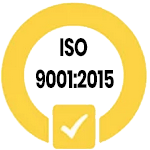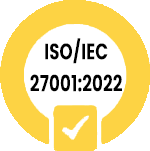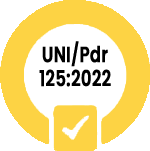The Notice establishes criteria and methods for the granting of concessions to large businesses and SMEs and provides for the expansion, modernization and renovation of properties intended or to be allocated to tourist, hotel and non-hotel activities for the development of complementary products and services to the valorisation of the cultural and natural attractions of the territory, with the following purposes:
– the raising of the quality standards of the offer and the expansion and improvement of services in an ecological and green key;
– the digitalisation of companies operating in the tourism sector to enhance their level of competitiveness and spread and support the evolution of the tourism industry 4.0, encouraging the creation of new digital cultural and tourist services and the creation of innovative elements for the tourism ecosystem tourism in Puglia;
– the training of operators in order to promote innovative work organization models to develop digital skills;
– support and qualify regional employment including female employment.
Beneficiaries
The Integrated Tourism Facilitation Packages can be presented by large, medium, small and micro-sized companies, as well as by business networks / consortia.
Eligible interventions
The Integrated Tourism Facilitation Package must concern productive investments intended for:
a) expansion, modernization and renovation of hotel and non-hotel tourist facilities with a number of rooms of no less than 5, as well as interventions aimed at overcoming architectural barriers;
b) construction of tourist hotel facilities and extra-hotel facilities with a number of rooms of no less than 5, through extraordinary maintenance works, consolidation and the restoration and conservative rehabilitation of properties of artistic and historical-architectural interest;
c) consolidation, restoration and conservative redevelopment of rural buildings, farms, trulli, towers, fortifications for the purpose of transforming the property into tourist-hotel facilities and non-hotel facilities with a number of rooms of no less than 5.
d) new tourist-hotel activities referred to in art. 3 of regional law n. 11/99, through the physical and/or functional recovery of unfinished structures, legitimately begun, intended for hospitality activities;
e) recovery and redevelopment of abandoned buildings and/or in need of extraordinary maintenance, restoration and conservative redevelopment or building renovation works referred to in the Presidential Decree of 6 June 2001, n. 380 "Consolidated Law on legislative and regulatory provisions on construction" and subsequent amendments, to be used for the construction of accommodation, conference, sports, cultural and/or recreational facilities.
f) structures, systems or interventions through which the territorial tourist offer is improved with the aim of encouraging the deseasonalisation of tourist flows.
The subsidized projects must aim to promote energy or water saving or sustainable waste management.
The Integrated Tourism Package must be made up of Productive Investments integrated with digital, technological, energy and circular economy programs, through at least one of the following interventions:
a) digital, technological, strategic, organizational and management innovation projects for tourism businesses;
b) training projects aimed at qualifying skills relating to digital transformation, sustainable tourism, ecological transition and green reconversion;
c) investments in favor of environmental protection.
The supported project may also include, exclusively for SMEs:
d) specialist consultancy programmes, including Internationalisation;
e) expenses for participation in fairs.
The Notice can also facilitate initiatives proposed by a business/consortium network aimed at promoting coordinated and integrated packages of tourist offers which may consist of digital investments, internationalization activities, training interventions, centralized management and programming also through the use of platforms dedicated and accessible to network/consortium companies, to increase tourist flows, including international ones, expanding the business of each individual participant in the network/consortium.
Eligible expenses
The Integrated Tourism Facilitation Packages must concern investment programs with a total amount of eligible expenses and costs between 30 thousand euros and 5 million euros.
Productive investment programs must include eligible expenses not exceeding 90% of the integrated package.
Investments for innovation in favor of SMEs cannot exceed 500 thousand euros.
Investments for process and organizational innovation cannot exceed 2 million euros for large companies and 500 thousand euros for SMEs.
Investments in training cannot exceed 2 million euros for large companies and 500 thousand euros for SMEs.
Investments for environmental protection cannot exceed 3 million euros for large companies and 1.5 million euros for SMEs.
SMEs' expenses for consultancy and internationalization services cannot exceed 500 thousand euros and expenses for participation in fairs cannot exceed 500 thousand euros.
Investments relating to the business network program cannot be less than 500 thousand euros and not more than 5 million euros.
Facilitation
Non-repayable contribution. For Productive Investments the benefits are granted within the following limits:
a) for large companies 35%, as follows:
✓15% direct subsidy in the form of a non-repayable contribution to which a further benefit may be added up to a maximum limit of 20%, divided as follows:
– 10% contribution to the plant account determined on the interest amount of a loan granted by a Financing Party;
– 10% ESL on guarantee, counter-guarantee, co-guarantee and reinsurance operations, on the bank loan granted;
b) for medium-sized enterprises 45%, as follows:
✓ 25% direct subsidy in the form of a non-repayable contribution to which a further benefit may be added up to the maximum limit of 20% divided as follows:
– 10% contribution to the plant account determined on the interest amount of a loan granted by a Financing Party;
– 10% ESL on guarantee, counter-guarantee, co-guarantee and reinsurance operations, on the bank loan granted;
c) for small businesses 55%, as follows:
✓ 35% direct subsidy in the form of a non-repayable contribution to which a further benefit may be added up to a maximum limit of 20% divided as follows:
– 10% contribution to the plant account determined on the interest amount of a loan granted by a Financing Party;
– 10% ESL on guarantee, counter-guarantee, co-guarantee and reinsurance operations, on the bank loan granted.
Exclusively in the context of Productive Investments, the concession percentages may be increased by 5% based on the rewards. These benefits cannot exceed the limits established by the Aid Charter - State Aid. Limited to SMEs, for innovation aid in favor of SMEs, the aid intensity does not exceed 50% of the eligible costs, as follows:
✓ 30% direct grant in the form of a non-repayable contribution; to which a further discount may be added up to a maximum limit of 20% divided as follows:
– 10% contribution to the plant account determined on the interest amount of a loan granted by a Financing Party;
– 10% ESL on guarantee, counter-guarantee, co-guarantee and reinsurance operations, on the bank loan granted.
For Aid for process and organizational innovation, the aid intensity for large enterprises does not exceed 15% of the eligible costs, as follows:
– 10% direct subsidy in the form of a non-repayable contribution to which a further subsidy may be added up to the maximum limit of 5% contribution towards plants determined on the interest amount of a loan granted by a Financing Party.
Limited to SMEs, for aid for process and organizational innovation the aid intensity does not exceed 50% of the eligible costs, as follows:
✓ 30% direct subsidy in the form of a non-repayable contribution to which a further benefit may be added up to a maximum limit of 20% divided as follows:
– 10% contribution to the plant account determined on the interest amount of a loan granted by a Financing Party;
– 10% ESL on guarantee, counter-guarantee, co-guarantee and reinsurance operations, on the bank loan granted.
For training interventions, the aid intensity does not exceed: a) for large companies 50%, as follows:
✓ 30% direct subsidy in the form of a non-repayable contribution to which a further benefit may be added up to a maximum limit of 20% divided as follows:
– 10% contribution to the plant account determined on the interest amount of a loan granted by a Financing Party;
– 10% ESL on guarantee, counter-guarantee, co-guarantee and reinsurance operations, on the bank loan granted;
b) for medium-sized enterprises 60%, as follows:
✓ 40% direct subsidy in the form of a non-repayable contribution to which a further benefit may be added up to a maximum limit of 20% divided as follows:
– 10% contribution to the plant account determined on the interest amount of a loan granted by a Financing Party;
– 10% ESL on guarantee, counter-guarantee, co-guarantee and reinsurance operations, on the bank loan granted;
c) for small businesses 70%, as follows:
✓ 50% direct grant in the form of a non-repayable contribution; to which a further discount may be added up to a maximum limit of 20% divided as follows:
– 10% contribution to the plant account determined on the interest amount of a loan granted by a Financing Party;
– 10% ESL on guarantee, counter-guarantee, co-guarantee and reinsurance operations, on the bank loan granted.
For investments in favor of environmental protection, which allow companies to achieve greater energy efficiency, the aid intensity is as follows:
a) for large companies 45%, as follows:
✓ 25% direct grant in the form of a non-repayable contribution; to which a further discount may be added up to a maximum limit of 20% divided as follows:
– 10% contribution to the plant account determined on the interest amount of a loan granted by a Financing Party;
– 10% ESL on guarantee, counter-guarantee, co-guarantee and reinsurance operations, on the bank loan granted;
b) for medium-sized enterprises 55%, as follows:
✓ 35% direct grant in the form of a non-repayable contribution; to which a further discount may be added up to a maximum limit of 20% divided as follows:
– 10% contribution to the plant account determined on the interest amount of a loan granted by a Financing Party;
– 10% ESL on guarantee, counter-guarantee, co-guarantee and reinsurance operations, on the bank loan granted;
c) for small businesses 65%, as follows:
✓ 45% direct subsidy in the form of a non-repayable contribution to which a further benefit may be added up to a maximum limit of 20% divided as follows:
– 10% contribution to the plant account determined on the interest amount of a loan granted by a Financing Party;
– 10% ESL on guarantee, counter-guarantee, co-guarantee and reinsurance operations, on the bank loan granted.
For investments in favor of environmental protection, which allow companies to obtain the promotion of energy from renewable sources, renewable hydrogen and high-efficiency cogeneration, the aid intensity is as follows:
a) for large companies 45%, as follows:
✓ 25% direct grant in the form of a non-repayable contribution; to which a further discount may be added up to a maximum limit of 20% divided as follows:
– 10% contribution to the plant account determined on the interest amount of a loan granted by a Financing Party;
– 10% ESL on guarantee, counter-guarantee, co-guarantee and reinsurance operations, on the bank loan granted;
b) for medium-sized enterprises 55%, as follows:
✓ 35% direct grant in the form of a non-repayable contribution; to which a further discount may be added up to a maximum limit of 20% divided as follows:
– 10% contribution to the plant account determined on the interest amount of a loan granted by a Financing Party;
– 10% ESL on guarantee, counter-guarantee, co-guarantee and reinsurance operations, on the bank loan granted;
c) for small businesses 65%, as follows:
✓ 45% direct subsidy in the form of a non-repayable contribution to which a further benefit may be added up to a maximum limit of 20% divided as follows:
– 10% contribution to the plant account determined on the interest amount of a loan granted by a Financing Party;
– 10% ESL on guarantee, counter-guarantee, co-guarantee and reinsurance operations, on the bank loan granted.
Limited to SMEs, in relation to internationalization programs and the acquisition of specialist consultancy, the aid intensity does not exceed 50% of the eligible costs, as follows:
✓ 30% direct grant in the form of a non-repayable contribution; to which a further discount may be added up to a maximum limit of 20% divided as follows:
– 10% contribution to the plant account determined on the interest amount of a loan granted by a Financing Party;
– 10% ESL on guarantee, counter-guarantee, co-guarantee and reinsurance operations, on the bank loan granted.
Limited to SMEs, in relation to participation in trade fairs the aid intensity does not exceed 50% of the eligible costs, as follows:
✓ 30% direct subsidy in the form of a non-repayable contribution to which a further benefit may be added up to a maximum limit of 20% divided as follows:
– 10% contribution to the plant account determined on the interest amount of a loan granted by a Financing Party;
– 10% ESL on guarantee, counter-guarantee, co-guarantee and reinsurance operations, on the bank loan granted.
With exclusive reference to sports infrastructure, the use of which is open to more than one athlete, professional or otherwise, for at least 20% of the total time per year, the amount of aid is calculated on the difference between the eligible costs and the operating result ex ante based on reasonable projections, as follows:
a) for large companies 60% of the investment, as follows:
✓ 40% direct subsidy in the form of a non-repayable contribution to which a further benefit may be added up to a maximum limit of 20% divided as follows:
– 10% contribution to the plant account determined on the interest amount of a loan granted by a Financing Party;
– 10% ESL on guarantee, counter-guarantee, co-guarantee and reinsurance operations, on the bank loan granted;
b) for medium-sized and small businesses 70%, as follows:
✓ 50% direct subsidy in the form of a non-repayable contribution to which a further benefit may be added up to a maximum limit of 20% divided as follows:
– 10% contribution to the plant account determined on the interest amount of a loan granted by a Financing Party;
– 10% ESL on guarantee, counter-guarantee, co-guarantee and reinsurance operations, on the bank loan granted.
With exclusive reference to multifunctional recreational infrastructures, understood as recreational facilities with a multifunctional character that offer, in particular, cultural and recreational services, excluding amusement parks and hotels, the amount of aid is calculated on the difference between the eligible costs and the ex ante operating result based on reasonable projections, as follows:
a) for large companies 60% of the investment, as follows:
✓ 40% direct subsidy in the form of a non-repayable contribution to which a further benefit may be added up to a maximum limit of 20% divided as follows:
– 10% contribution to the plant account determined on the interest amount of a loan granted by a Financing Party;
– 10% ESL on guarantee, counter-guarantee, co-guarantee and reinsurance operations, on the bank loan granted;
c) for medium-sized and small businesses 70%, as follows:
✓ 50% direct subsidy in the form of a non-repayable contribution to which a further benefit may be added up to a maximum limit of 20% divided as follows:
– 10% contribution to the plant account determined on the interest amount of a loan granted by a Financing Party;
✓ 10% ESL on guarantee, counter-guarantee, co-guarantee and reinsurance operations, on the bank loan granted.
Presentation
Waiting for the publication of the implementing decree. Publication expected in the second half of 2023.
Photo by Milivoj Kuhar on Unsplash





